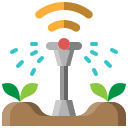Smart Irrigation Systems for Sustainable Agriculture
Smart irrigation systems are revolutionizing modern agriculture by integrating advanced technologies to optimize water use, increase crop yields, and promote environmentally conscious farming practices. As global water resources become more stressed and agricultural demand rises, adopting innovative irrigation solutions is critical to achieve sustainability. These systems not only address water scarcity but also help farmers reduce costs, conserve energy, and protect the environment, ensuring productive and resilient agricultural landscapes for generations to come.
Sustainable agriculture relies on balancing productivity with responsible resource management, and water is one of the most critical resources in farming. Smart irrigation systems incorporate soil moisture sensors, weather forecasting, and automated valves to ensure water is used only when needed. By minimizing waste and runoff, these systems reduce the environmental impact associated with agriculture, contributing to healthier soils and waterways while safeguarding resources for the future.
The Importance of Smart Irrigation in Modern Farming
How Smart Irrigation Systems Work
Intelligent Sensors and Field Data Collection
At the core of every smart irrigation system are sensors that monitor crucial parameters such as soil moisture, temperature, humidity, and sunlight. These sensors are deployed throughout the field to capture a detailed, real-time understanding of microclimatic conditions that impact water needs. The collected data is wirelessly transmitted to a central platform, where it is analyzed to assess the exact state of the soil and crops. With this granular information, irrigation can be precisely tailored, eliminating the inefficiencies of uniform watering schedules and supporting optimal crop growth.
Automated Valves and Irrigation Scheduling
Smart irrigation systems replace manual controls with automated valves and programmable controllers that respond to real-time field data and weather forecasts. These components enable variable irrigation schedules and rates, adjusting water delivery not only to daily needs but even in response to sudden changes like rain or extreme heat. Automation ensures that no water is wasted, reduces the likelihood of human error, and frees up farmers’ time for other vital tasks. The system’s ability to self-regulate also means fields receive consistent and appropriate hydration, even in the operator’s absence.
Integration with Data Analytics and Cloud Platforms
Modern smart irrigation solutions often connect to cloud-based data management platforms, where powerful analytics interpret field conditions, weather predictions, and historical irrigation performance. These platforms provide customizable dashboards and mobile alerts, empowering farmers with actionable insights and remote control. Such connectivity allows systems to learn over time, optimizing irrigation strategies based on accumulated data and shared best practices. The fusion of analytics, machine learning, and remote access turns every field into a dynamic site of innovation, continually improving water use and crop outcomes.
Benefits of Smart Irrigation for Sustainable Agriculture
Water Conservation and Reduced Waste
One of the most significant benefits of smart irrigation is its ability to drastically reduce water usage without compromising crop health. By applying water exactly where and when it’s required, these systems minimize evaporation, runoff, and leaching. Enhanced water efficiency prolongs the viability of local water supplies and reduces pressure on overburdened aquifers and streams. In drought-prone regions, adopting smart irrigation can make the difference between sustainable crop production and agricultural decline, ensuring that water resources remain available for other ecological and human needs.
Improved Crop Yields and Quality
Consistent and targeted irrigation supports optimal growing conditions throughout the entire crop cycle, resulting in healthier plants and higher yields. Smart systems can quickly detect and respond to changes in soil moisture or weather conditions before they impact crop development. This responsiveness maximizes nutrient uptake and reduces the risk of stress-induced diseases or pests. Over time, improved crop quality translates into better market prices and increased competitiveness, reinforcing the economic and food security benefits of smart agriculture.
Lower Environmental Footprint
By reducing water consumption, energy use, and associated inputs like fertilizers, smart irrigation systems help lower the overall environmental footprint of agriculture. Precise irrigation means fewer chemicals are lost through runoff, protecting nearby waterways and ecosystems from pollution. Energy savings from reduced pumping and improved management further contribute to lower greenhouse gas emissions. These advances help make agriculture more compatible with environmental goals and support the transition to a more climate-resilient, sustainable future.
